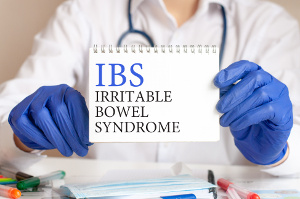Irritable bowel syndrome is linked to vitamin and mineral deficiencies
 Irritable bowel syndrome is a widespread condition that is characterized by pain and gastrointestinal discomfort with varying degrees of diarrhea and constipation. There can be a number of underlying causes, but diet plays a major role. Also, there is evidence that being deficient in B-vitamins, vitamin D, magnesium, calcium, iron, and zinc may be a contributing factor. In addition, strict dieting as part of the disease management may result in nutrient deficiencies, according to a review article that is published in Gastroenterology and Hepatology.
Irritable bowel syndrome is a widespread condition that is characterized by pain and gastrointestinal discomfort with varying degrees of diarrhea and constipation. There can be a number of underlying causes, but diet plays a major role. Also, there is evidence that being deficient in B-vitamins, vitamin D, magnesium, calcium, iron, and zinc may be a contributing factor. In addition, strict dieting as part of the disease management may result in nutrient deficiencies, according to a review article that is published in Gastroenterology and Hepatology.
Around 15 percent of the population suffers from irritable bowel from time to time. The condition is also called irritable bowel syndrome (or IBS). There are many factors involved, including disturbances in the intestinal transport function, food sensitivity, brain-gut axis disorders, immune system disorders, low stomach acid, and changes to the gut microflora. Some disruptions may affect the entire digestive tract and not just the large intestine. Irritable bowel syndrome can impair your quality of life, and the disease may increase the risk of depression, anxiety, and impaired job performance.
Symptoms typically include:
- Pain and gastrointestinal discomfort
- Irregular bowel movements
- A change in bowel habits – such as diarrhea, constipation, or sometimes both
- Bloating and swelling of your stomach
- Excessive wind (flatulence)
The diet is believed to play a major role due to increased intolerance to certain foods that may affect the digestion, immune defense, and gut flora. It may therefore be advisable to keep track of the different foods and limit one’s intake of these foods or avoid them altogether. Irregular mealtimes, stress, worries, and anxiety can also play a role. Scientists are even looking at the potential impact of being deficient in essential nutrients that are vital for our digestion.
Irritable bowel, lack of nutrients, and strict diets
The scientists behind the new review article collected 26 studies from four different databases (PubMed, Embase, Web, and Science). The studies looked at patients with irritable bowel syndrome, their intake of nutrients, and levels of nutrients in their blood. It was seen that patients with irritable bowel syndrome generally had lower levels of vitamin B2, vitamin D, calcium, and iron, compared with healthy controls. Many people with irritable bowel syndrome stick with strict diets that exclude different foods. According to the studies, this may cause transitory lack of vitamin B1, vitamin B2, calcium, iron, and zinc. Lack of magnesium may also play a role, especially in people with constipation or who are stressed.
Nutrients and their role in digestion and other body functions
The different vitamins and minerals play a major role in our digestion. For example, B vitamins are needed to produce stomach acid, and they are important for our gut flora and intestinal immune defense. Vitamin C, vitamin D, and zinc support our mucosa and immune defense and help control inflammation. Magnesium has a relaxing effect on muscles, including the intestinal sphincters, which support peristalsis in individuals who are tense or stressed. Magnesium also helps to retain fluid in the intestines. Zinc and vitamin C are important antioxidants that protect against cell damage caused by oxidative stress.
Vitamins and minerals are also involved in a host of other functions that are related to energy turnover, bone formation, blood sugar regulation, and health in general. Minor or major nutrient deficiencies can therefore cause other serious symptoms.
According to the review article, only few studies have looked at micronutrients and their role in irritable bowel syndrome. With respect to supplementation, there has primarily been focus on vitamin D, which has a positive effect. The authors call for more studies, including studies on B vitamins (B6, B9, and B12), zinc, and calcium. Magnesium (as magnesium oxide) is useful for treating constipation.
References:
Schin Bek et al. Association between irritable bowel syndrome and micronutrients: A systematic review. Gastroenterology and Hepatology. 2022
TIP! See also the related articles
Search for more information...
- Created on .








